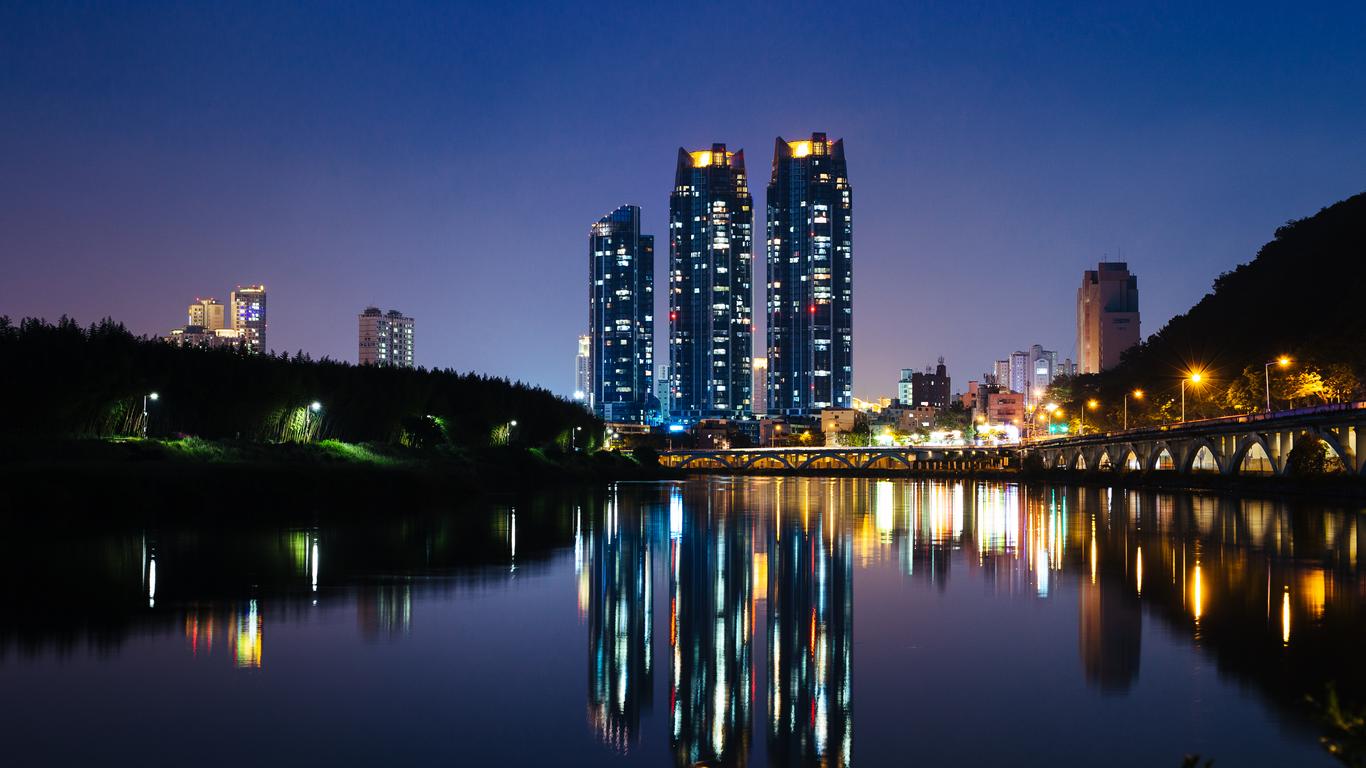As South Korea’s industrial powerhouse, Ulsan is home to the world’s largest shipyard and automobile assembly plant. It also boasts the second largest oil refinery on the planet. Industrial manufacturing isn’t the city’s only talent, as Ulsan is also the gateway to the Yeongnam Alps, which are renowned as one of South Korea’s most beautiful natural wonders.
Industrial sites dominate the city’s landscape, but looming warehouses aren’t the only attractions on offer. The government has designated Twelve Scenic Areas, spotlighting both natural attractions and man-made feats. Highlights include hiking Mt Gaji in the Baekdudaegan Mountain Range, watching the sunrise from the Ganjeolgot, admiring the horizon at Black Pebble Beach and catching a night bus up Mt Muryong to get a spectacular view of the glittering lights of Ulsan Industrial Complex.
Just 70km north of Busan, Ulsan is easily reachable by car, train or bus. Once in the city, an extensive public bus network makes it easy to get from A to B. Taxis are also fast and affordable, which makes them a favourite with international visitors.
While the city itself is utterly urbanised, Ulsan is also hailed as the gateway to some of South Korea’s most spectacular natural scenery. It’s a jumping point to Gajisan National Park, which is peppered with scenic hiking trails. Munsu Mountain is eternally popular with rock climbers, with over 100 sport routes available. For naturalists, gazing up at the lush hundred-year-old pine forests of Daewangam Park is a great way to escape the buzz of the city.





